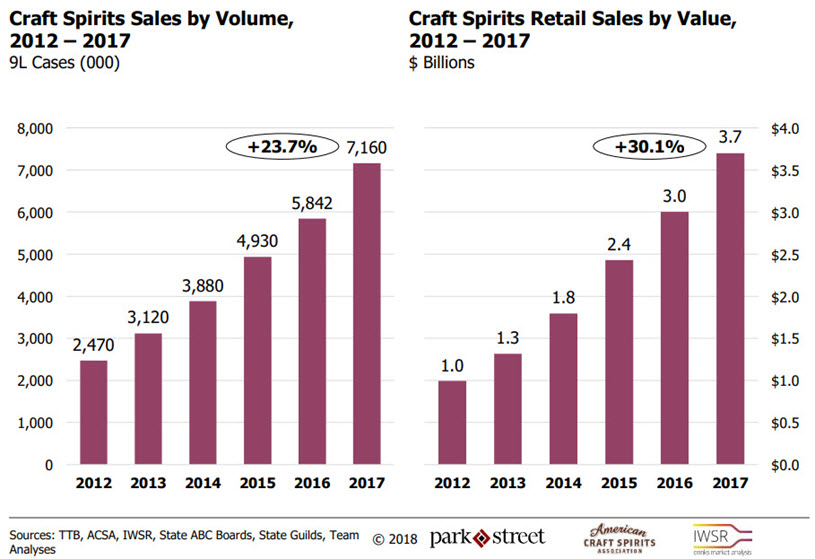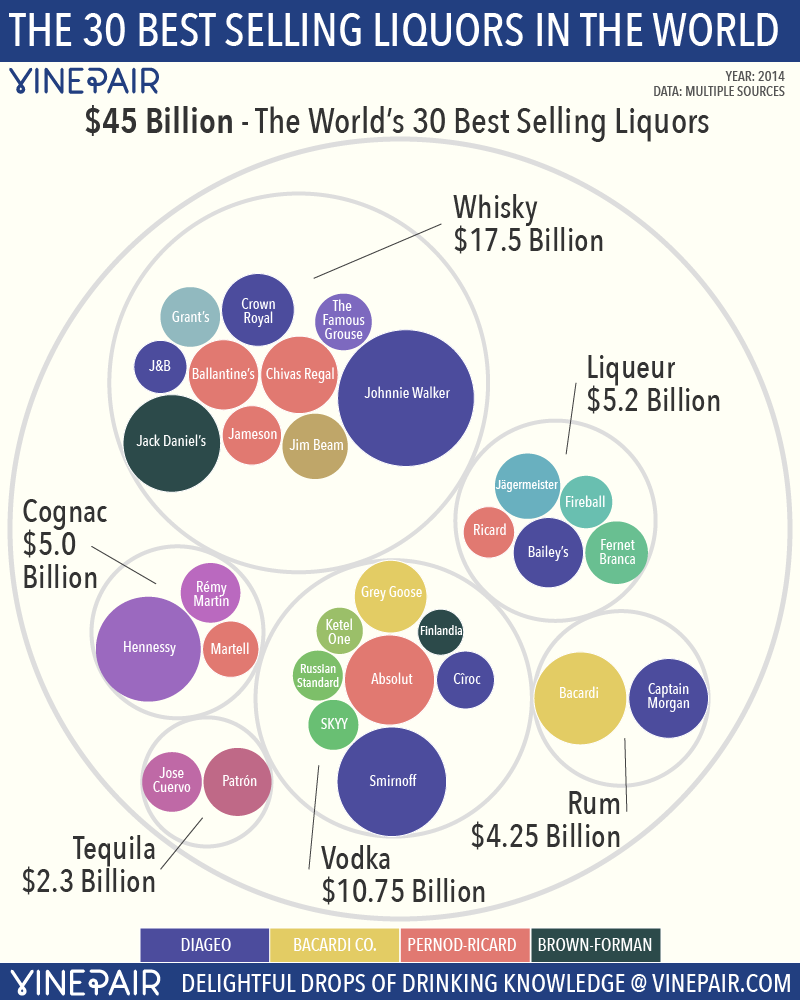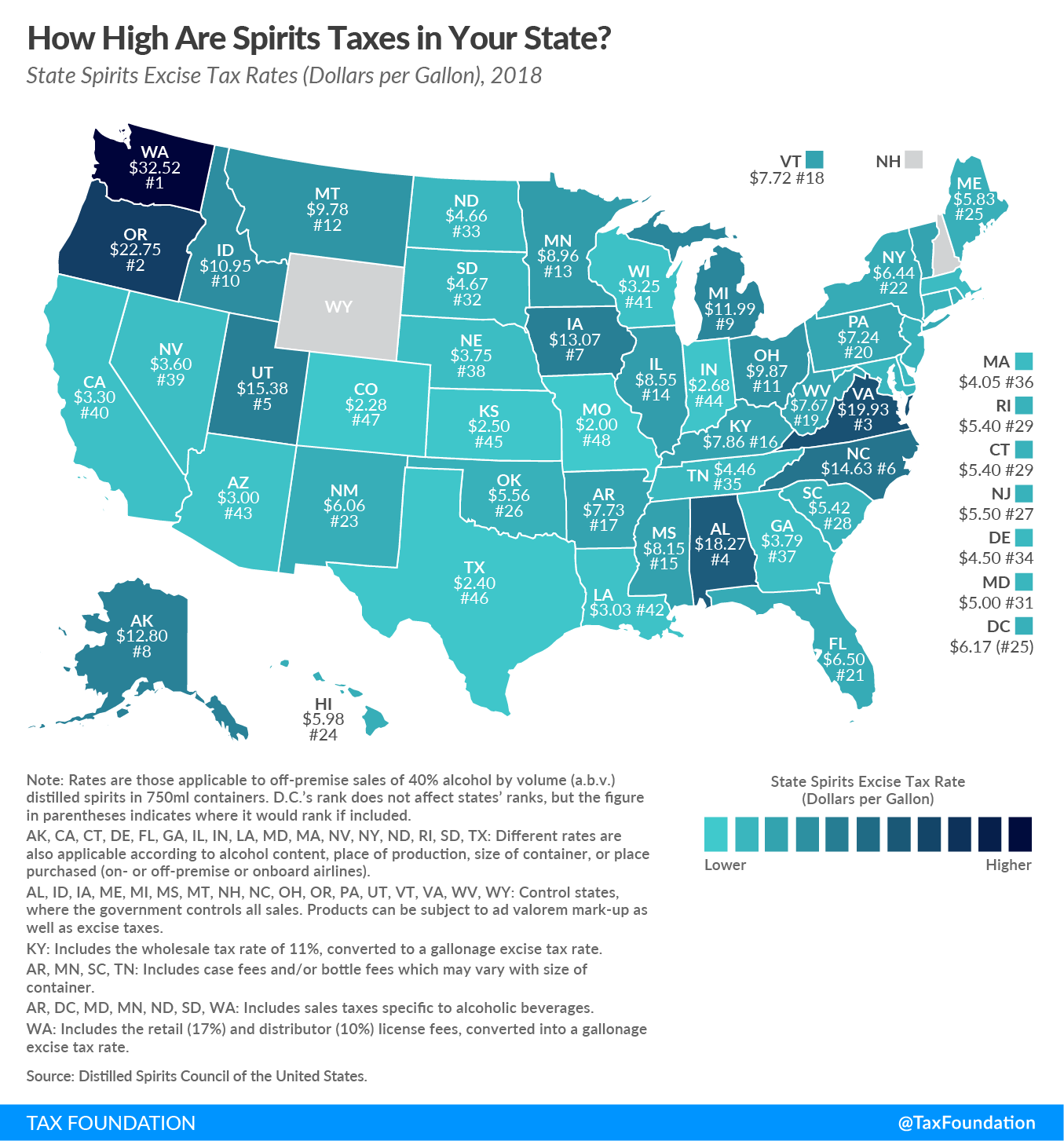If you're thinking about starting your own craft distillery, one of your first questions might be - how much is it going to cost?
The short answer - "it depends."
The cost of starting a new distillery can range enormously based on your business plan and the type of distillery you want to create.
Watch the video or continue reading to find out more about what's needed to start your own distillery.
How Much Does it Cost to Start a Distillery?
Unlike a simple commodity like corn or rye, the cost of starting a distillery can vary greatly.
For instance, let's say you have $50,000 for startup costs.
You could obtain a high-end 40 gallon still from Germany for $50,000. Or you could spend a quarter of that and buy an economical still from somewhere else and allocate the rest of your startup money for other items.
One isn't "more right" than the other. It really comes down to your resources and which option fits with your business plan. As you can see from the chart below, craft spirits sales are continuing to rise. Knowing that growth trend, would you want to go after the high-end market or be the budget-friendly brand?

The One Distilling Piece You Should Definitely Invest In
Whichever type of brand you want to create, there is one cost that you should be mindful of and set aside as much capital as needed.
And that's legal advice.
You'll definitely want to make sure you've got everything lined up legally because if you get tied up with legal issues, you can have a great product, but you wouldn't be able to use it - at least not legally.
The good news is that there are a lot of organizations out there that can help with legal advice and expertise. The American Distilling Institute, for instance, has annual conferences and expos and they actually have a lot of information on their website.
The American Craft Spirits Association (ACSA) is another good resource for legal requirements.
Affordable Distilling Equipment
For distilling equipment, there are a lot of affordable options.
In the Oregon State University fermentation lab, there's a 10 gallon still that cost less than $3,000. That type of still might not get you very far on its own, but if you can get a second one, then you can double your capacity.
So, there are affordable options for obtaining distillery equipment to get up and running.
However, it does come back to the legal requirements because that will cut you off at the knees if you don't get it right.
Spirits Bottle Design Hack
It seems that new distillers all want their own bottle design. However, a bottle mold can cost you anywhere from $20,000 to $70,000. To make that worthwhile, you would have to be making a lot of bottles (and selling a lot of product).
Now, here's a simple hack.
There are some bottle makers who might have excess prototypes that have never been taken up by the market. In essence, they've already built the mold and now it's just collecting dust.
So, it's worth reaching out to them for potential unique bottles. That way you can have a unique bottle mold without having to pay for the pricey process of getting it made.
This simple hack can help save you thousands.
Producing at Scale - The Long Play
If you have big aspirations and want to produce at large volume and scale, you'll need to be flush with investment funds ... and patience.
For producing whisky at scale, it could be three to five years before you sell your product and start seeing a return on your investment. And if you are producing at scale, you'll need aging warehouses, marketing, and possibly even tasting rooms.
The marketing piece is another big variable and you'll want to make sure you're maximizing your efforts and expenses as much as possible.
For inspiration, Johnnie Walker is the largest liquor brand in the world. Vinepair.com has an interesting breakdown of the 30 best selling liquors in the world.

Starting Your Distillery With What You Have
In addition to equipment and legal needs, marketing can be another substantial expense to be aware of. Some consultants have said that you need as much as four-million dollars to properly start and market a new distillery.
However, that's on the high end and by no means the rule.
With the right business plan, you can certainly start a new distillery on a shoestring budget. You can obtain a relatively low cost still and start making gin or whiskey fairly quickly and inexpensively.
So, it's horses for courses as they say. Four-million dollars is great if you have it, but not everyone just has four-million dollars lying around.
Tax Cuts for Small Distilleries
Recently, the federal excise taxes dropped substantially from $13.50 to $2.70 per gallon for the first 100,000 gallons.
In case you're not familiar with excise tax or just need a refresher, according to the IRS, "Excise taxes are taxes paid when purchases are made on a specific good, such as gasoline. Excise taxes are often included in the price of the product."
This tax cut can be a game-changer for small startups and can result in thousands of dollars in savings.
According to the Tax Foundation, taxes are higher for distilled spirits compared to beer and wine. Here's the Tax Foundation's map that shows how spirits are taxed per state.
External Funding
Rather than going it alone, external funding might be an option worth exploring.
It's possible to receive external funding for a distillery, however, it could depend on where you are physically located.
For instance, there are parts of the UK with higher rates of unemployment, so there might be local grants to help facilitate business development and growth.
In addition to loans and grants, you could also look into crowdfunding.
To date, it hasn't been common for distilling, but there are breweries like BrewDog who have gotten quite a lot of mileage out of crowdfunding.
However, it comes back to your brand and whether you have a compelling story as to whether that would work or not.
Distilling Classes
If you would like personalized one-on-one coaching and instruction on how to open your own distillery and avoid common mistakes, you can read more about Oregon State University's Distillery Startup Workshop.
In the expert-led five-day workshop, you will:
- Learn essential information on relevant practical aspects of making a new spirit and finishing the product.
- Interact with practical demonstrations of distillation.
- Address the challenge of adjusting alcohol content to legal requirements.
If you'd like to dive deep into the business side of starting and running a distillery, you can learn more about our new Foundations of Distilled Spirits Business and Essential Training course.
Whether you want to start a distilling business with gin, whiskey/whisky, and anything else, this two-day workshop will help you avoid costly mistakes and shorten the time from idea to execution.
Related Distillery Posts You Might Be Interested In
- How To Start a Craft Distillery.
- Why Target Market Research Is So Important for a New Craft Distillery.
- What Are the Legal Requirements For Starting a Distillery?
- 6 Common Distilling Myths and the Facts Behind Them.
- What's the Difference Between Whiskey and Bourbon and Bourbon and Scotch?
- Fast Aging Vs Slow Aging Spirits.
- Why Breweries Might Want to Add Distilled Spirits.
About Paul Hughes, OSU Fermentation Science Instructor
 Paul Hughes, Ph.D., joined Oregon State University to establish a dedicated distilled spirits program. Paul holds a Master of Business Administration with a specialism in innovation and he teaches, trains and consults internationally.
Paul Hughes, Ph.D., joined Oregon State University to establish a dedicated distilled spirits program. Paul holds a Master of Business Administration with a specialism in innovation and he teaches, trains and consults internationally.
He has co-authored two textbooks (one on beer, one on whisky), more than 60 peer-reviewed and conference papers and has been granted four patents.
Paul teaches the five-day Distillery Startup Workshop where attendees can learn practical tools and techniques to successfully begin and maintain their own craft distillery.




